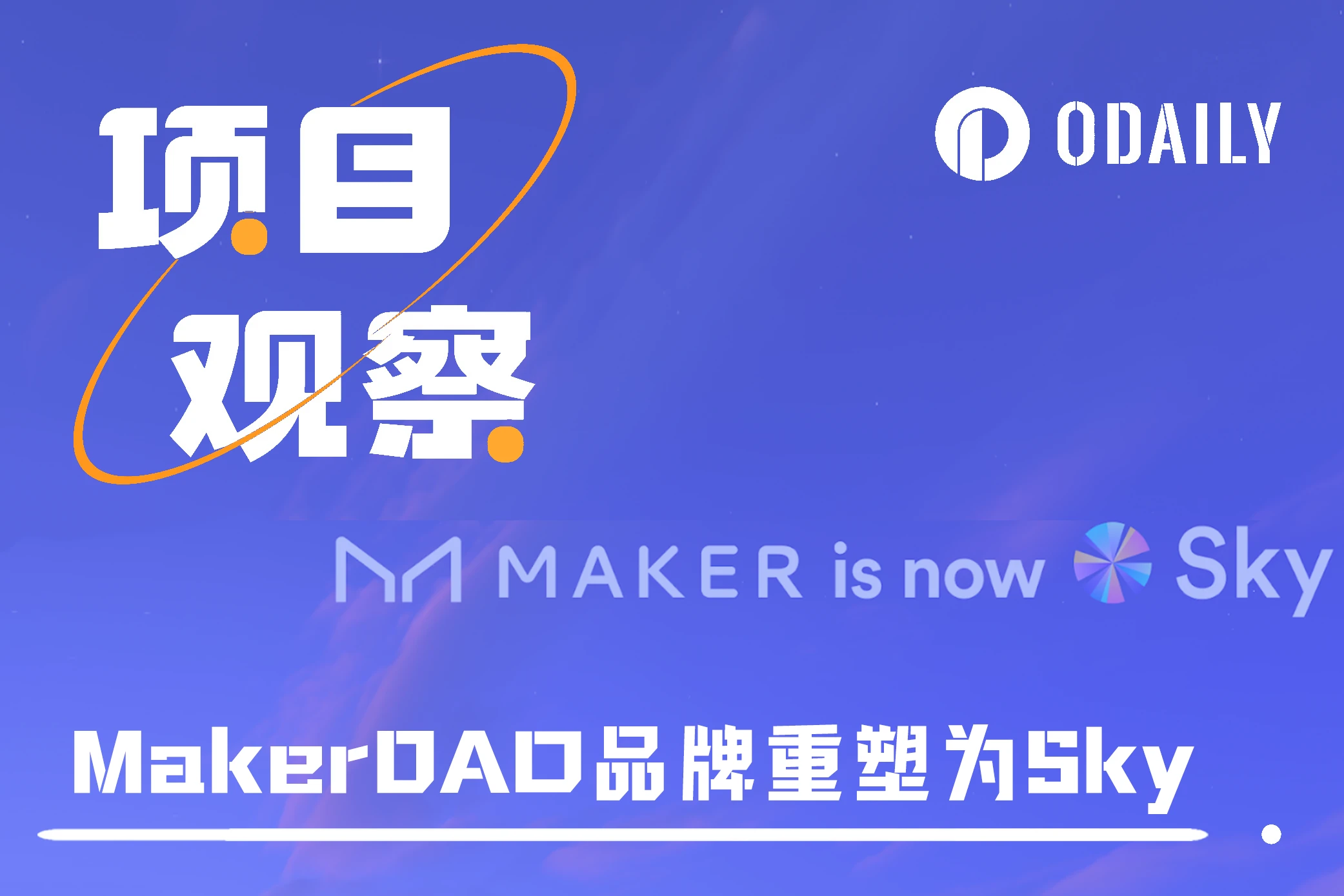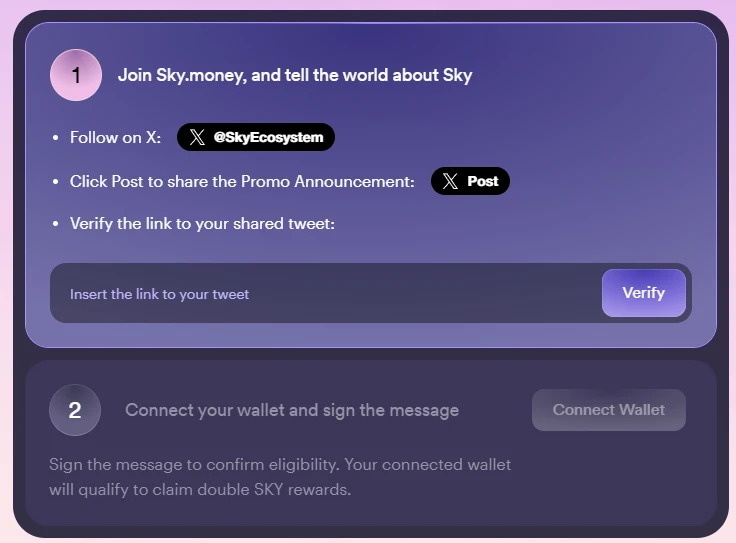Original | Odaily Planet Daily ( @OdailyChina )
Author|Nan Zhi ( @Assassin_Malvo )

Yesterday, MakerDAO announced that it would officially rebrand, changing its name from MakerDAO to Sky, its centralized stablecoin DAI to USDS, and MKR to SKY. Odaily will summarize and analyze the details of MakerDAOs rebranding in this article.
Interpretation of the official announcement
Sky Protocol’s new tokens SKY and USDS are officially defined as the upgraded version of MKR and DAI, aiming to be the best protocol for users to obtain savings income without giving up control. Among them:
Governance Token SKY
In an announcement from MakerDAO 6 days ago , the official said that “the renaming of the new governance token is intended to promote broader governance participation. It allows more users to hold a large number of NewGovTokens and actively influence the future of the ecosystem.”
Therefore, the ecosystems new governance token SKY will be obtained through splitting, and each MKR split will be upgraded to 24,000 SKY. As of the time of writing, the unit price of MKR is approximately 1950 USDT, and the corresponding unit price of SKY after the split is 0.08125 USDT.
Sky said that users can deposit USDS to the Sky Protocol on its official website Sky.money to get SKY tokens ( Get SKY tokens by supplying your USDS to the Sky Protocol ), but the details and data of this method have not yet been announced. This is very different from MKR. In addition to the pre-mining and investor parts, MKR will only issue additional MKR to make up for the debt gap when the Dai system is insufficiently collateralized and in debt .
Stablecoin USDS
USDS will be exchanged for DAI at a 1:1 ratio. In addition, the official said that it can also be exchanged for ETH, USDC, and USDT on the official website. The exchange will be opened in 21 days (September 18).
Sky Protocol currently has launched a SKY double reward qualification event , which users can obtain by completing a small number of social media tasks and signing with the wallet used for subsequent deposits. When the exchange is opened after 21 days, users can receive incentives by providing USDS to the Sky token reward module .

Shift to Centralization
It is important to note that Spark Protocol CEO Sam MacPherson said that the USDS after DAI upgrade will have a freezing function , which is not available in DAI before. In contrast, centralized stablecoins such as USDT and USDC all have freezing functions, which means that DAI is no longer a decentralized stablecoin. Considering its interest-bearing mechanism, it should be more accurately defined as an RWA product.
In addition, Sky also emphasized in the announcement that the SKY double qualification bonus event mentioned above (referred to as the X Activation event in the terms) is not open to users in the United States.
Other centralization restrictions that Odaily found in Sky Protocol’s legal terms include:
Regional restrictions : Users must not reside, be located in, or be incorporated or have a registered office in the following countries or regions: Afghanistan, Belarus, Myanmar, Burundi, Central African Republic, China, Cuba, Democratic Republic of Congo, Ethiopia, Guinea, Guinea-Bissau, Haiti, Hong Kong, Iran, Iraq, Lebanon, Libya, Mali, Nicaragua, Niger, North Korea, Russia, Somalia, South Sudan, Sudan and Darfur, Syria, United Kingdom, Venezuela, Ukraine, Yemen and Zimbabwe. Regarding the restrictions on jurisdictions, MakerDAO founder Rune also reiterated in Cointelegraphs report .
Restrictions on transactions with sanctioned users : Users must ensure that they will not trade with any individuals sanctioned by the U.S. Treasury Departments Office of Foreign Assets Control (OFAC) or European Union (EU) or United Kingdom (UK) regulations.
Restrictions on the use of tools such as VPNs : Users may not use VPN software, proxy servers or any other privacy or anonymity tools or technologies to circumvent any restrictions on the Services, particularly those that limit the geographical availability of the Services.
Other Impacts
For regular users, changes in the degree of centralization of tokens and protocols have little impact on their perception of use, but based on historical experience, token splits may bring about secondary speculation , which may have the greatest impact on regular users.
The most critical impact of this upgrade on other protocols is that MakerDAO’s subDAO will obtain the right to issue coins, and the first subDAO Spark Protocol may be the first to issue coins.
Specifically, MakerDAO co-founder Rune Christensen said in an interview with Cointelegraph that Maker SubDAO will become Sky Stars, continuing as independent decentralized projects, connecting the Sky ecosystem through its unique business model and autonomy. Each Sky Star will be able to issue governance tokens autonomously, manage its finances and community, and independently execute DAO-specific decisions .
The move is intended to allow for innovation, experimentation, and additional risk-taking through Sky Stars, while Sky Protocol itself focuses on maintaining the value and security of the USDS stablecoin.










